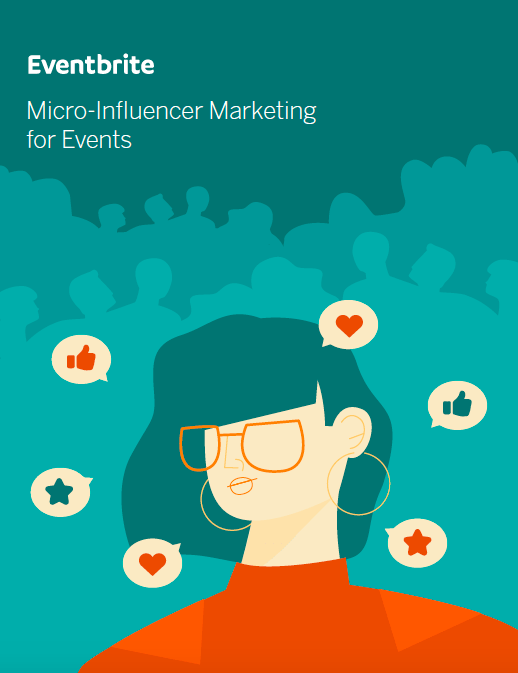Social influencer marketing has been generating a lot of buzz this year. Chances are it’s on your list of event marketing tactics to try and if so, you’re not alone. Nearly 85% of marketers have plans to use some type of influencer marketing in 2017.
But influencer marketing can be an intimidating and nebulous, and challenging to develop a strategy. Here are the basics you need to know to employ a social influencer campaign that drives attendance for your event.
Read More: The Micro-Influencer Marketing Strategy Guide
Influencer marketing 101
Celebrity endorsements have been a powerful advertising tool for decades, but social media has changed the game. Now, anybody can become a powerful influencer with thousands (if not hundreds of thousands) of followers, all interested in the products and brands they’re using.
But influencers can come in a variety of shapes and sizes and it’s not all about their number of followers. For some events, smaller, more niche “micro influencers” who have smaller but dedicated followings might be the right play. Others may want to go the route of social media ambassadors or advocates, and focus more on activating their existing fans to tap into their influence over their networks, regardless of their follower numbers.
These influencer and peer-to-peer endorsements on social media can be just as effective as a famous spokesperson, since they feel more authentic and relevant. This is especially true for events, as potential attendees are often looking for validation from someone they trust before committing their time and money to an event.
Use technology to help find the right influencers
Your strategy should start with determining what type of influencer is right for your goals, and then researching and compiling a list of people who might be a good fit for your event. These will generally be people who are extremely active on social media, have sway over their audience, and who share content relevant to your event.
If your event is a food festival, the main social media influencers will probably be on Instagram, posting dramatic pics of sushi and cocktails. If you host a business conference, the biggest names might be on LinkedIn, sharing articles on best practices and business trends.
Without advanced social tools, identifying and engaging the right influencers for your event can be a challenge. Here are some social media tools you can turn to to both identify influencers and organise and track your strategy.
- SocialRank can help you pinpoint potential influential accounts within your existing audience of fans and followers on Twitter and Instagram. You can filter by information like location, follower numbers, bio keywords, and most engaged. You can also cross-check them against the followers of similar events to find relevant accounts to target.
- Scrunch can help you find and interact with influencers in your sphere. Drill down to the right influencers based on bio keywords, topics the influ ncers have posted about on social media or their blogs, and more. You can then connect with your target influencers and manage the full campaign process right through the platform.
- SocialLadder lets you build an event promotion team from within your ranks of fans. Recruit and enlist brand ambassadors — and arm them with things like custom vanity promo codes to share with their friends and followers on social media. A tool like this helps you activate an already engaged fan base and incentivise them to spread the word.
- StreetTeam is specifically designed for events and allows you to build your own custom ambassador program. The software makes it easy to create, recruit, manage, and reward your network of social advocates, and you only pay when your ambassadors produce actual ticket sales.
Build your influencer marketing strategy
The key to influencer marketing isn’t just finding the right influencers — it’s forging meaningful and mutually beneficial relationships with the ones you choose to work with.
As you craft your influencer strategy, keep these three tips in mind:
- Align your campaign plan with your goals: What are you hoping to get out of this campaign? Are you trying to increase awareness about your event? Sell more VIP passes? Or maybe your event is sold out, but you want to drum up great coverage to build the demand for next year’s? Define your goals and make sure your influencer ask matches them.
- Don’t just think about what they can do for you. Influencer marketing is a two-way street — and you have to create a compelling proposition, whether you’re dealing with influencer or ambassadors. This could be inviting them to your event for free, providing a VIP upgrade or special behind-the-scenes access.
- Custom promo codes are one great option that reinforces the influencer as influential while also spreading the word about your event and encouraging ticket sales. Approach the influencers in a similar manner to how you’d approach event partners or sponsors: build a relationship first, including engaging with them on social media and showing interest in their content.
- Always make sure expectations are clear and ground rules are set early on. If you’re expecting something in return for that VIP ticket upgrade, establish it ahead of time. Are they expecting to be paid for that tweet? Clarify exactly how much before beginning the campaign. If you just offer an influencer a free ticket in exchange for “posting about your event,” you could be setting yourself up for disappointment.






